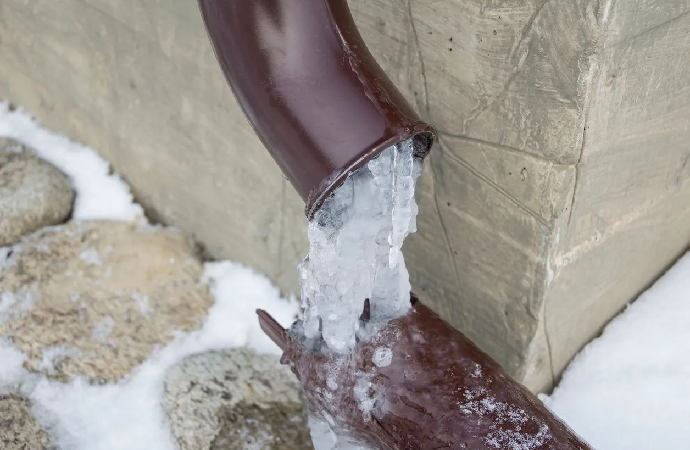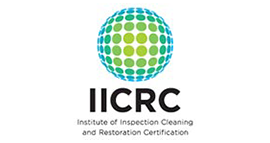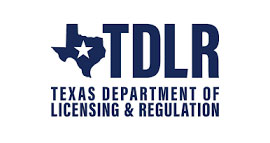Dangers of Burst Plumbing Pipes From Winter Storms
Burst plumbing pipes during winter storms are a significant issue, especially in areas like Houston, Texas, where extreme weather may be less expected. Understanding the causes, prevention methods, and consequences of burst pipes can help Frontier Services Group inform its clients effectively through a comprehensive blog.
Causes of Pipe Bursts
Pipes commonly burst in winter due to the freezing water inside them, which causes the water to expand and increase pressure within the pipes. This expansion can lead to the pipe bursting, especially if there are existing weaknesses in the pipe's structure. Insufficient insulation of pipes, especially those running through unheated areas or close to external walls, exacerbates the problem.
How to Tell if My Pipes Are Frozen

Identifying frozen pipes is crucial to prevent them from bursting and causing significant damage. Here are key indicators that your pipes might be frozen:
- Reduced or No Water Flow: A noticeable decrease in water pressure or no water from your faucet is a common sign. If you turn on a tap and only a trickle comes out or nothing at all, this could indicate that the water in your pipes has frozen.
- Frost on Pipes: Visible frost accumulating on exposed pipes, such as those under sinks or in basements, clearly indicates freezing. This is more easily spotted on pipes that are exposed and accessible.
- Unusual Smells: If you detect strange or unpleasant odors from a faucet or drain, it might be because the ice in the pipes is blocking the passage of air and odors. This can cause smells to back up and become noticeable in your home
- Cold Temperatures: Pipes are more likely to freeze when temperatures are below 32 degrees Fahrenheit. Suppose your home or specific areas (like basements, attics, and garages) must be more adequately insulated and exposed to these cold temperatures. In that case, the risk of frozen pipes increases.
- Noises in Pipes: Sometimes, when a pipe starts to freeze, it can make unusual noises like clanging, banging, or whistling. These sounds can occur due to changes in water flow and pressure inside the pipes.
Prevention Tips
- Insulate Pipes: Use pipe sleeves or wrap them with insulation or heat tape, focusing on vulnerable areas like basements, attics, and near exterior walls.
- Seal Cracks and Openings: Caulk or apply spray foam insulation to any cracks that might let in cold air, mainly where pipes run from inside to outside.
- Maintain Consistent Indoor Temperature: Keep your thermostat set at the same temperature day and night to prevent freezing.
- Drip Faucets: Allow faucets to drip slightly to relieve pressure and prevent pipes from freezing.
- Open Cabinet Doors: This helps warm air circulate in the plumbing, especially under sinks.
- Drain Outdoor Faucets: Disconnect, drain outside hoses, and shut off water to outdoor faucets
Consequences of Burst Pipes
The impact of burst pipes goes beyond just a plumbing issue. They can cause extensive water damage to a home, including:
- Foundation Damage: Water from burst pipes can seep into concrete slabs, causing them to crack and break down. Wooden support beams can rot, and the home's structural integrity can be compromised.
- Interior Damage: Walls, ceilings, and flooring can suffer from water damage, leading to warping, mold growth, and electrical hazards
- Economic Impact: The cost of repairing burst pipes and the resultant damage can be significant, adding a financial burden to the homeowners.
Additional Home Winterization Tips
- Roof Maintenance: Regular inspection and maintenance of the roof can prevent ice dams and related damage.
- Window Insulation: Weatherstripping, plastic film insulation kits, and thermal curtains can improve energy efficiency and prevent cold air infiltration.
- Ice Melt Products: For safety, use ice melt products on walkways and driveways to prevent slips and falls
What Should I Do if a Pipe Bursts in My Home?
A burst pipe can quickly cause significant damage to your home. Taking immediate and appropriate action can help minimize this damage. Here’s what you should do:
- Shut Off the Water: The first step is to stop the flow of water. Locate and turn off the main water valve in your home. This is typically found in the basement, near the water meter, or where the main water line enters the house.
- Turn Off Electricity: If the water leak is near any electrical appliances or outlets, turn off the electricity at the circuit breaker to avoid electrical hazards.
- Drain the Faucets: Open all your faucets to drain the remaining cold water out of the pipes. This helps to relieve any remaining pressure in the system and can prevent additional pipes from bursting.
- Document the Damage: Before starting any cleanup, document the damage for insurance purposes. Take photos and make a list of any damaged property.
- Start the Cleanup Process: Begin removing water as quickly as possible to prevent mold and further damage. Use buckets, towels, and wet/dry vacuums if necessary. It's important to get areas as dry as possible.
- Contact Your Insurance Company: Report the incident to your insurance company. They can guide you on policy coverage and the claim process. The documentation you prepared earlier will be useful here.
- Call a Professional Plumber: Have a licensed plumber repair the burst pipe. They can also assess if there are any other risks in your plumbing system.
- Prevent Mold Growth: Mold can develop within 24-48 hours of a water event. Keep the affected area well ventilated and consider using dehumidifiers to speed up the drying process.
- Repair and Restore: After the immediate issues are addressed, you’ll need to repair any damage to walls, floors, and furnishings caused by the water.
- Review and Prevent: Once everything is back in order, review what caused the pipe to burst and take measures to prevent it from happening again. This could include additional insulation for your pipes or more regular maintenance checks.
Remember, safety is paramount. If you’re unsure about any aspect, especially related to electrical systems or structural integrity, it’s best to wait for professionals. Handling a burst pipe effectively can mitigate the damage and help get your home back to normal as quickly as possible.
Frequently Asked Questions
Yes, outdoor pipes and those in unheated indoor areas like basements and garages are more susceptible to freezing. It's important to insulate these pipes and to drain and shut off outdoor faucets before winter.
Absolutely. Even a tiny crack can release a substantial amount of water, leading to flooding, structural damage, and potential mold growth. A crack can release hundreds of gallons of water per day.
Signs of hidden water damage include unusual stains on walls or ceilings, peeling paint or wallpaper, a musty smell, and unexpected increases in your water bill.
No, using an open flame to thaw pipes is dangerous and can cause fires. Safer methods include using a hair dryer, heating pads, or towels soaked in warm water.
Long-term damages can include mold and mildew growth, rotting wood, damaged electrical systems, and compromised structural integrity of the house.
This depends on your specific policy, but most homeowners insurance policies cover damages from burst pipes. It's essential to check your policy for specifics..
Experiencing a burst pipe? Call Frontier Services Group.
As you brace for the winter months, remember that the safety and integrity of your home are paramount. If you're worried about the risks of burst plumbing pipes, or if you've already experienced this unfortunate event, don't hesitate to reach out to the experts. Frontier Services Group specializes in tackling the challenges posed by winter storms in Houston, and Texas communities.
We offer comprehensive services to prevent and repair the damages caused by burst pipes, ensuring your home remains safe and dry throughout the coldest months. Don't wait for an emergency to strike. Contact us today for a consultation and learn how we can protect your home from the harsh realities of winter. Remember, proactive steps today can save you from costly repairs tomorrow. Let Frontier Services Group be your partner in home maintenance and safety.










